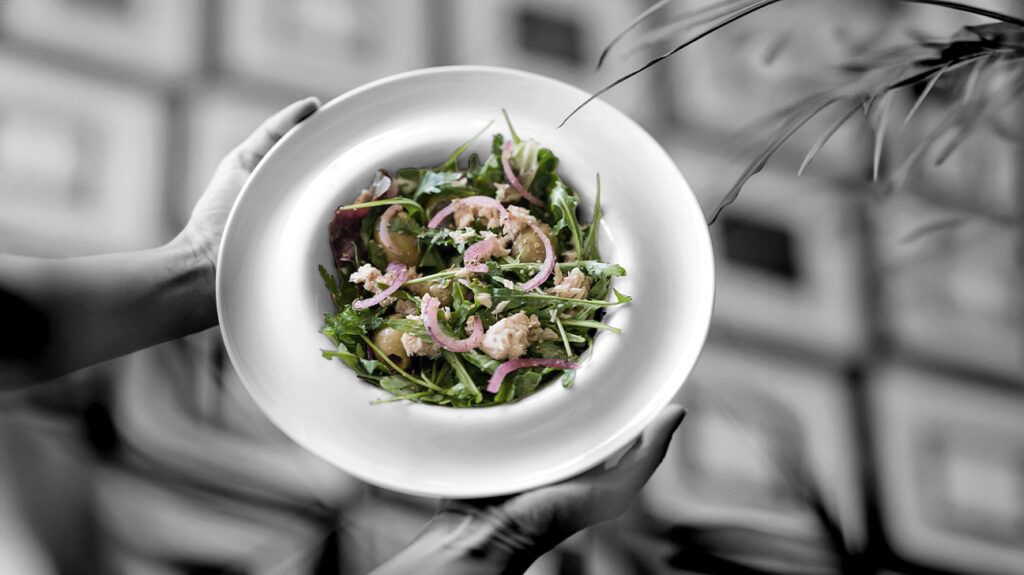
[ad_1]

- A brand new research confirmed {that a} Mediterranean or MIND food regimen resulted in higher cognitive well being for females.
- The research of 509 twins discovered that these following these diets higher preserved episodic and visuospatial working reminiscence after 10 years.
- The doable mechanisms by which the diets are serving to protect cognitive well being are particular intestine micro organism and short-chain fatty acids.
A brand new research analyzing information from middle-aged females investigates the potential advantages of a Mediterranean or a MIND food regimen on cognitive well being.
The analysis included genetically an identical (monozygotic) twins and fraternal (dizygotic) twins.
The research finds that amongst monozygotic twin pairs, the dual with the next adherence to both the Mediterranean or MIND food regimen retained barely stronger episodic and visuospatial working reminiscence.
This commentary was important for twins with a higher adherence to the Mediterraneanfood regimen.
Monozygotic twins each develop from a single egg, or “ovum.” Fraternal, or “dizygotic,” twins are born collectively however don’t come from the identical egg. They are typically known as co-twins or start companions. Monozygotic twins are genetically an identical. Dizygotic twins share roughly 50% of their genes.
In this research, the researchers analyzed information from 509 feminine twins who had enrolled with the UK Adult Twin Registry between 1992 and 2004. Of this group, 34% have been monozygotic, and 66% have been dizygotic.
The research cohort included wholesome twins with a whole set of baseline information concerning food regimen — by way of questionnaires — and cognitive efficiency. Approximately 10 years later, between 2008 and 2010, twins took new cognitive tests, and individuals’ fecal samples have been analyzed.
The next adherence to the MIND food regimen at baseline was related to a higher abundance of the micro organism Ruminococcaceae and short-chain fatty acids at follow-up.
However, this affiliation was not important after adjusting for dietary fiber consumption.
The research is printed within the journal
“This study sets itself apart by honing in on female twins, offering a unique perspective on the interplay between diet and cognitive health,” mentioned Michelle Routhenstein, a registered dietitian nutritionist who focuses on coronary heart illness at EntirelyNourished, and who was not concerned on this research.
“By factoring in shared genetics and early life experiences, it delves deeper into the potential cognitive advantages associated with Mediterranean and MIND diets, particularly as individuals reach midlife,” she added.
Dr. Thomas Holland, from the Department of Internal Medicine, Division of Digestive Diseases and Nutrition at Rush University, additionally not concerned within the research, commented on its significance for Medical News Today.
“This study provides further evidence that our dietary habits in midlife can significantly impact our cognitive health,“ he told us. “It goes beyond the assumption that such habits are only beneficial later in life, emphasizing their relevance during midlife.”
He famous that after we take into consideration cognitive growth, we regularly view it as “a trajectory of improvement from childhood through adulthood and into midlife, with the expectation of some decline as we age.”
Importantly, he mentioned: “This study suggests that we possess the potential to enhance our cognitive resilience and build cognitive reserve during midlife. These benefits may extend into older age, enabling us to better maintain our cognitive abilities over time.”
The advantages in cognitive well being reported on this research have been much less dramatic than are typically seen in research of older individuals.
This could also be as a result of, as Dr. Holland instructed: “It’s commonly assumed that individuals in this stage are already operating at higher levels of cognitive function, approaching a theoretical ceiling. This dynamic contributes to the diminished observable effect in this demographic.”
“Episodic memory refers to our capacity to utilize personal experiences for learning new information, retaining it, and recalling it when necessary,” defined Dr. Holland.
“Meanwhile,” he mentioned, “visuospatial memory involves the ability to recognize objects and their spatial locations, internalize this information, and subsequently process and retain specific details about the objects.”
“These cognitive functions are crucial quasi-biomarkers of eventual cognitive health,” famous Routhenstein, “as deficits in them often manifest early in neurodegenerative diseases like Alzheimer’s, making their preservation indicative of lower risk for cognitive decline.”
Such cognitive talents, and others, collectively contribute to world cognition.
“While a deficiency in one cognitive domain may not necessarily signify an overall decline in global cognition,” mentioned Dr. Holland, “it can serve as a valuable indicator of cognitive health or trajectory.”
Both the Mediterranean and MIND diets are anti-inflammatory, healthy diets.
The research’s authors might current an extra clue explaining the mechanistic connection between these diets and powerful cognitive reserve: Ruminococcaceae and short-chain fatty acids.
Routhenstein defined: “Ruminococcaceae bacteria in the gut produce short-chain fatty acids (SCFAs) like acetate, propionate, and butyrate through dietary fiber fermentation, contributing to gut health and exerting anti-inflammatory effects crucial for protecting neuronal function.”
“These SCFAs, in turn, play a role in modulating immune system activity by reducing the recruitment of monocytes and neutrophils, thus exhibiting anti-inflammatory properties.”
— Dr. Thomas Holland, doctor scientist
“Additionally,” Routhenstein famous, “SCFAs act as energy substrates for gut epithelial cells and may cross the blood-brain barrier, providing energy to brain cells and modulating neurotransmitter levels, potentially enhancing cognitive function.”
Nevertheless, the consultants identified that folks ought to prioritize extra than simply their dietary habits to take care of mind well being as they age.
“While diet plays a pivotal role, it’s merely one component of a comprehensive healthy lifestyle,” mentioned Dr. Holland.
He cited the next way of life interventions for preserving cognitive well being:
- participating in average to vigorous bodily exercise
- cultivating an lively social circle
- collaborating in mentally stimulating actions (i.e., visiting museums or exploring new hobbies)
- prioritizing sleep high quality and amount
- implementing stress reduction techniques
[adinserter block=”4″]
[ad_2]
Source link